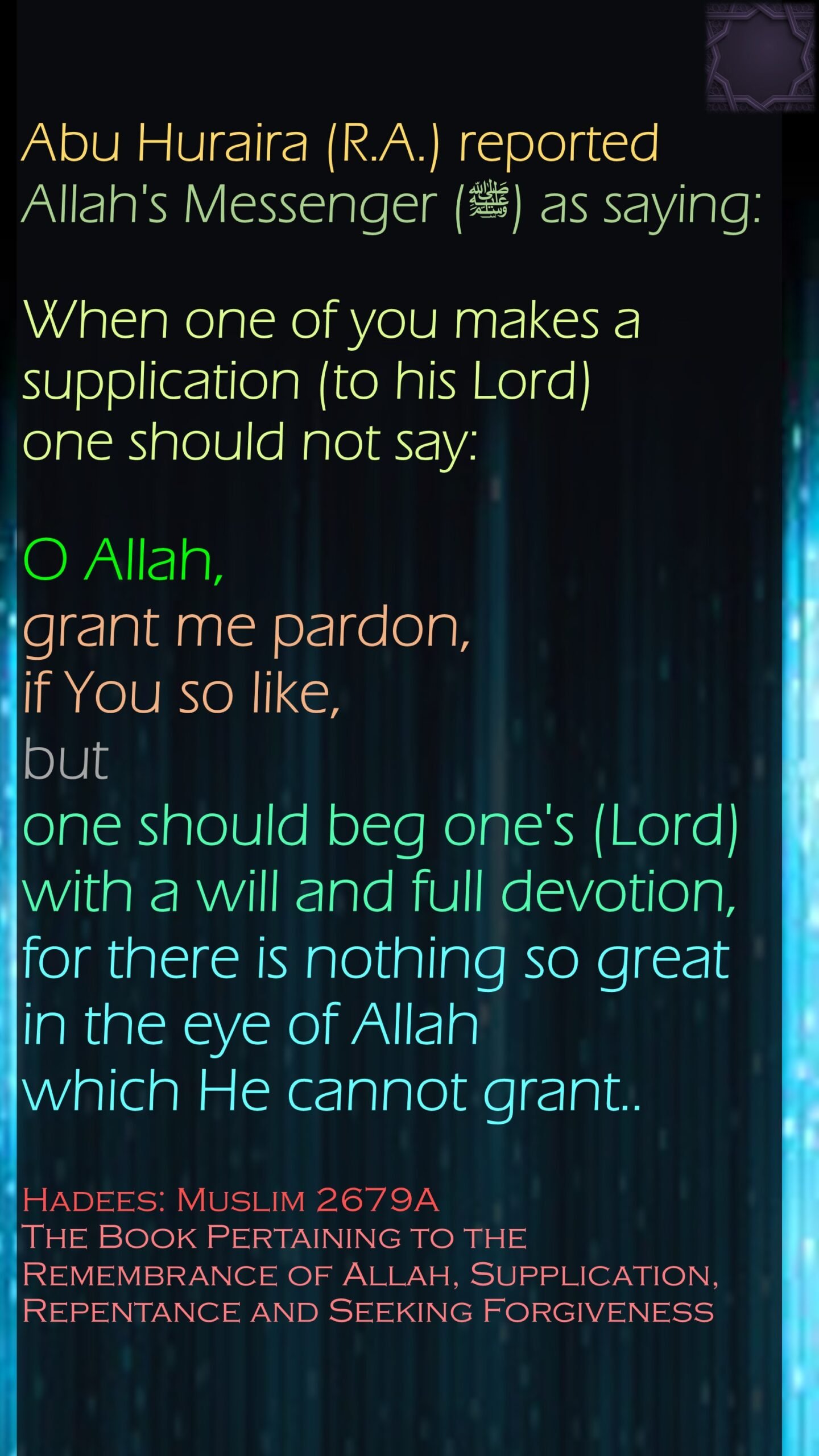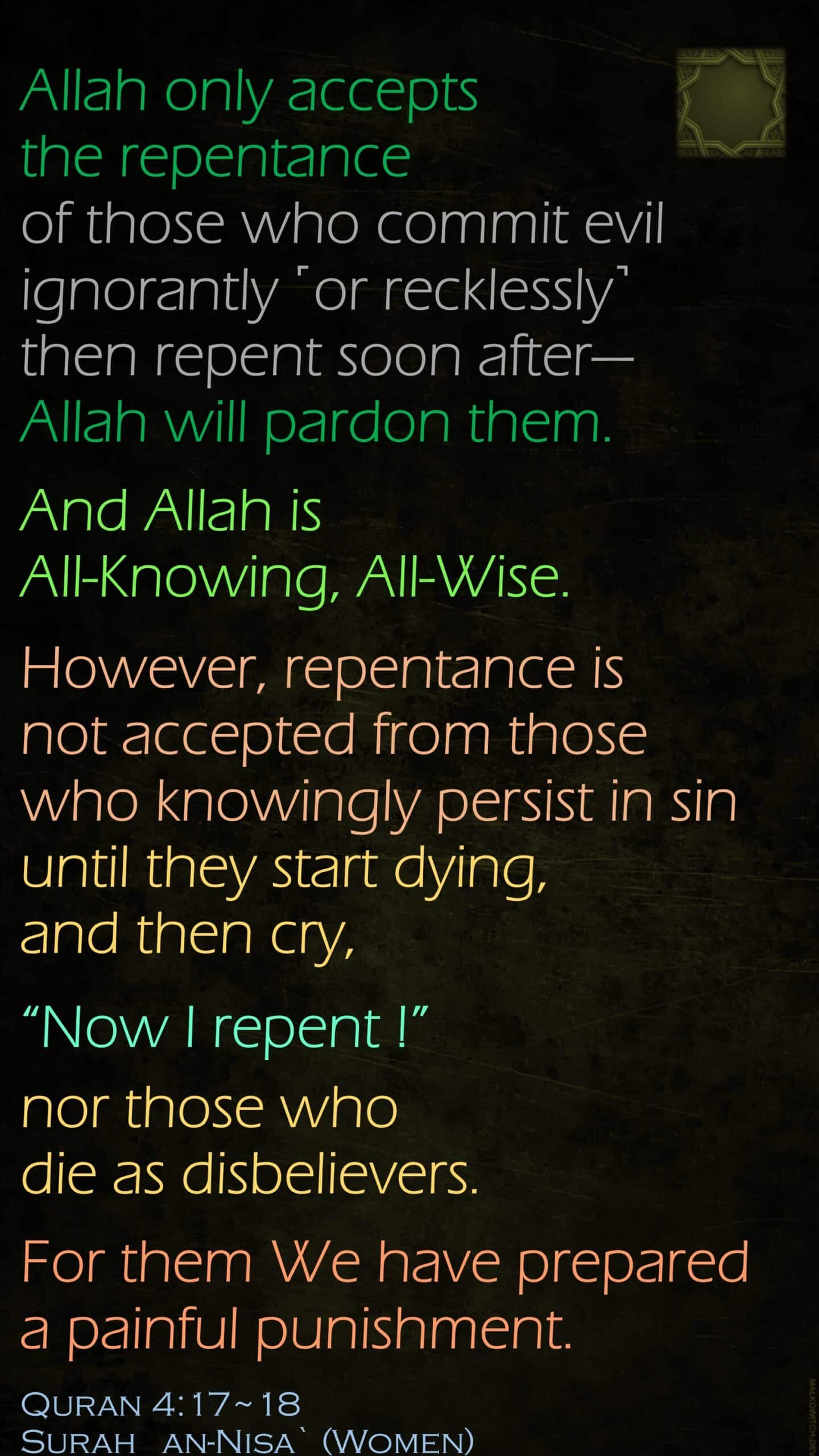18
Sep, 2025
Quran 4:147~149(Ayah an-Nisa`)
Islam, Quran 004, 147, 148, 149, All-Hearing, All-Knowing, Allah, an_Nisa, ayat, capable, conceal, daily, ever Apreciative, Ever_Pardoning, faithful, grateful, inspirations, islam, islamic, Muhammad, negative, pardon, punish, quran, reveal, Surah, thought, voice, why, women, wronged
3
Dec, 2024
Hadees: Tirmizi 3434
Hadees, Islam 1516, 3434, 3814, Abu Dawud, Abu Dawud 1516, Allah, at Tirmidhi, At Tirmizi 3434, compassion, daily, Ever Merciful, faults, forgive, Hadth, Ibn-e-Majah, Ibn-e-Majah 3814, inspirations, islam, islamic, Muhammad, Oft-Returning, pardon, Rabb, Rubb, wrongdoing, إِنَّکَ أَنْتَ التَّوَّابُ الرَّحِیْمُ, رَبِّ اغْفِرْ لِيْ, وَتُبْ عَلَيَّ
12
Nov, 2024
Quran 4:17~18
Islam, Quran 004, 018, accept, All-Knowing, All-Wise, Allah, An-Nisa, approach, ayat, daily, Death, disbelieve, forgive, grave, ignorant, ignorantky, inspirations, islam, islamic, Muhammad, Near, now i repent, painful, pardon, persist, Punishment, quran, realize, recklessly, repent, repentance, seek, soon, Surah, women
23
Sep, 2024
Hadees: Nisai 1985 (Funeral Prayer)
Hadees, Islam admit, Allah, Allahhuma, daily, exchange, excuse, expand, family, female, filth, fire, forgive, funeral, garden, garment, grave, hail, Heaven, her, His, home, honorable, ice, inspirations, islam, islamic, Jannah, male, man, Mercy, Muhammad, pardon, prayer, Punishment, purify, quran, reception, robe, spouse, supplication, torment, Water, white, woman
20
Jan, 2024










